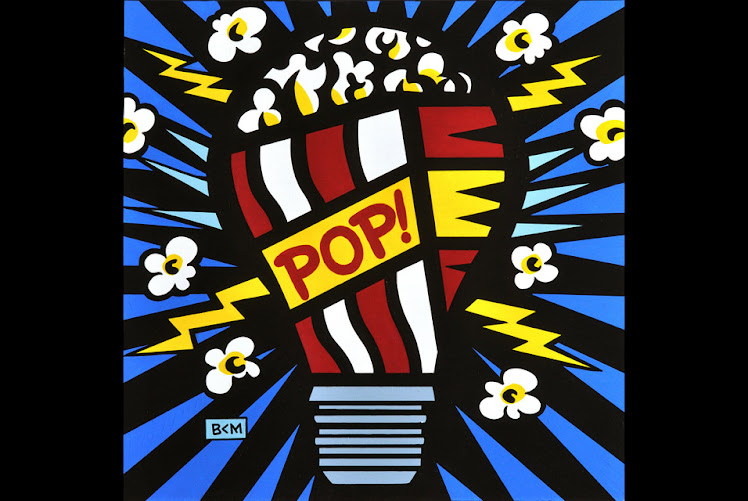Shopping
List: Tuna, Detergent, a Warhol
Along with the bales of
toilet paper and drums of tomato sauce that Costco customers load into their
online shopping carts, they can now add an original Warhol or Matisse, a result
of this giant discount retailer’s recent decision to re-enter the fine-art
market.
Quietly and cautiously,
like someone newly divorced returning to dating, Costco has begun selling fine
art again after quitting the business six years ago when questions were raised
about the authenticity of two Picasso drawings it had sold online.
In the two or so weeks
since Costco, a warehouse club store, began listing “Fine Art” in the Home
& Décor section of its Web site, it has sold 8 of the 10 works it initially
listed, including two framed lithographs by Henri Matisse, one for $1,000, and
the other for $800; a framed lithograph by Georges Braque for $1,400; a framed
screen print by Andy Warhol for $1,450; and a framed textile-and-paint collage
by Heather Robinson for $1,699.99, said Greg Moors, the San Francisco dealer
supplying the art to Costco.
Mr. Moors said he has about
five more works that he expects to list on the Web site over the weekend, but
added that it takes time to find and frame original art.
Ginnie M. Roeglin, senior
vice president for e-commerce and publishing at Costco, said, “We just started
this program and are just testing a few things.” She declined to comment
further on the decision to sell art again.
Mr. Moors said in an
interview that he was driven by his vision of art for everybody, and he
dismissed any incongruity in the notion of a discount warehouse club selling
fine art. For many gallery owners and Internet art sellers, “the deal is more
important than the customer,” Mr. Moors said, but with a brand-name store like
Costco, “the customer is more important than the deal.”
Galleries will sometimes
take sizable markups on works of art they purchase for resale, according to
dealers. By contrast, Mr. Moors said, Costco is charging a maximum of 14
percent over what they pay him, the same markup it applies to all its
merchandise.
Costco is certainly not the
first large chain to offer fine art. Between 1962 and 1971, Sears sold more
than 50,000 works by artists like Picasso, Rembrandt, Chagall and Whistler
through its catalog and in its stores as part of the Vincent Price Collection
of Fine Art. Customers at Sears could buy a work on layaway for as little as $5
down and $5 a month. Sears guaranteed every purchase just as it would with a
refrigerator or lawn mower.
Costco also guarantees
“satisfaction on every product we sell, with a full refund” within 90 days of
purchase. Mr. Moors’s phone number is listed under “product details” on the Web
site so that potential buyers can ask him questions.
Costco stopped selling fine
art in 2006 after Picasso’s daughter Maya Widmaier-Picasso questioned the
authenticity of a few drawings attributed to her father that the store was
selling. Those works ranged in price from $37,00 to $146,000 and did not come
from Mr. Moors, who started supplying museum-quality art to Costco in 2003.
This time, the retailer is offering lower-priced items, he said.
Shoppers who now click on
the company’s Web site can find lithographs for three and four figures, less
than many of the televisions Costco regularly sells.
The lithographs are
primarily unsigned. As Mr. Moors explained, unsigned works eliminate the
potential problem of forged signatures.
He said he was taking other
steps to ensure the art’s authenticity. “Certain artists are known to have had
problems,” he said. “For instance, although I like him as an artist, I won’t go
near Dalí.” Mr. Moors was referring to the proliferation of fake Dalí prints on
the market.
Ultimately, the best way to
avoid suspicion, he said, is to work with living artists. At the moment he
plans to offer art by Ms. Robinson and Johnny Botts, another California artist,
who says on his Web site that he uses “simple shapes, hard edges and happy
colors” to make his whimsical robots.
Mr. Moors came across Ms.
Robinson’s work at a boutique and studio space she shares with a jewelry
designer on Mission Street near the Bernal Heights section of San Francisco.
Mr. Moors chose colorful pieces that combined fabric and paint for the Costco
collection, Ms. Robinson said. Her art is being offered on consignment, and the
contract she signed with Mr. Moors does not prevent her from selling her
artwork anywhere else, including her own Web site.
Asked what her initial
reaction had been to to Mr. Moors’s proposal to sell her art at Costco, Ms.
Robinson searched for the right phrase.
“I was a little surprised,”
she started.
“My work is very. ...” she
continued.
“It’s not necessarily. ...
“When you think of Costco.
...”
“How should I put it?” she
asked, before settling on the idea that selling her work at Costco “would not
have occurred to me.”
Nonetheless, she is
thrilled to have access to Costco’s 60 million members. “It’s a really great
way to get exposure for my work in a way I wouldn’t be able to get on my own,”
Ms. Robinson said, adding, “I know their customers are really important to
them, and they have a really loyal following.”
As Mr. Moors said: “She is
starting off with an audience of 60 million people. You can social-network for
the next 30 years and never get that audience.”
